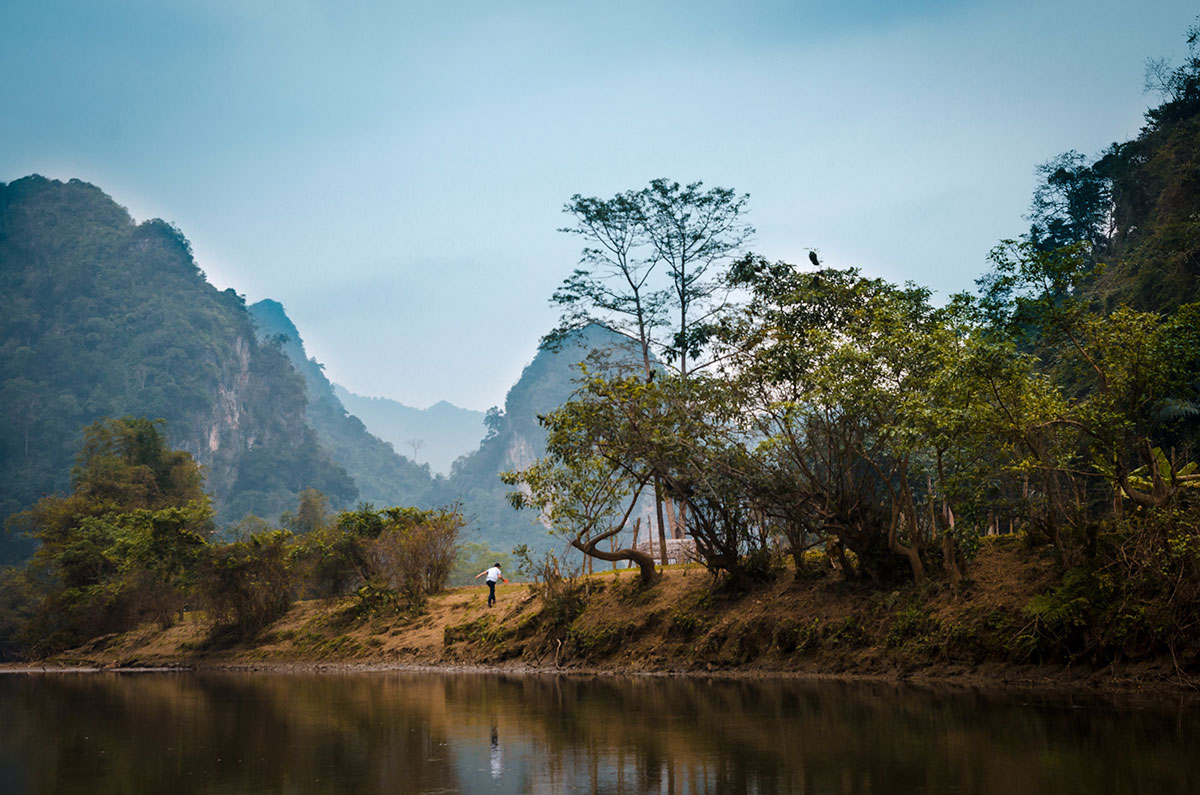Introduction
We were slowly sailing by karst peaks on the Nang River.
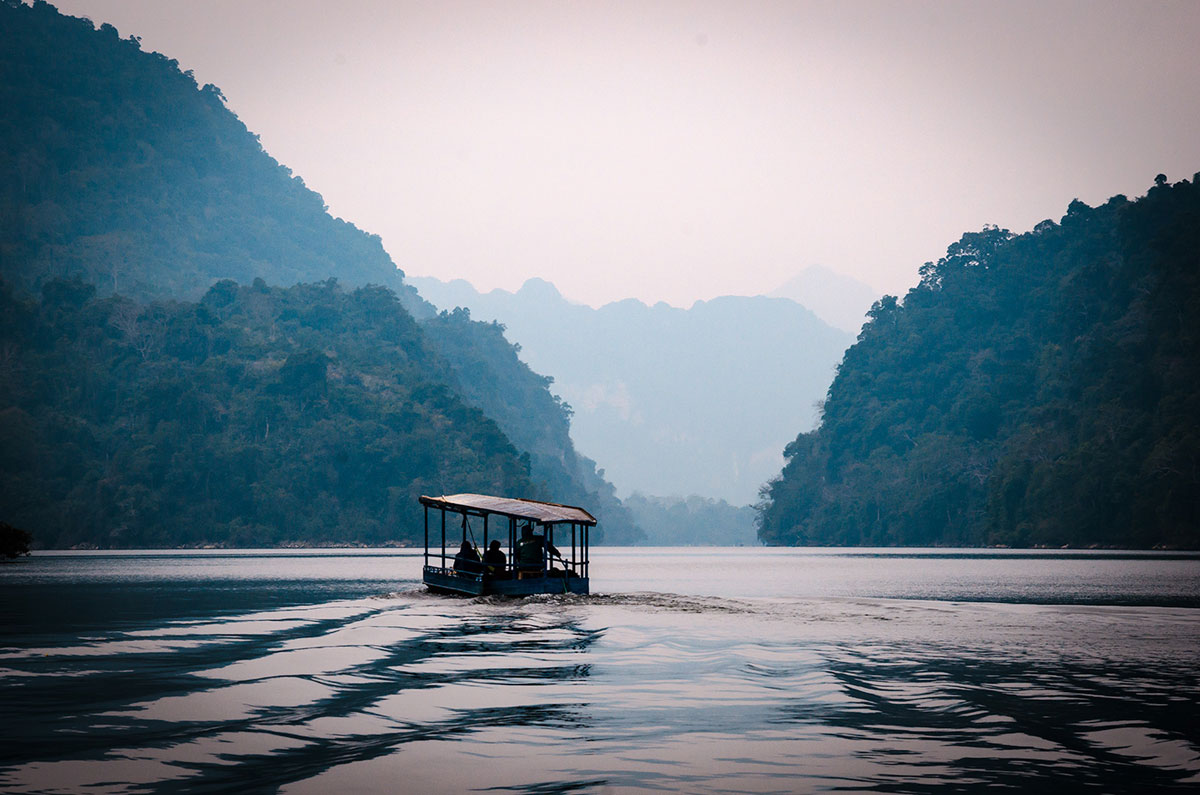
We occasionally saw someone walk through the dense forest.
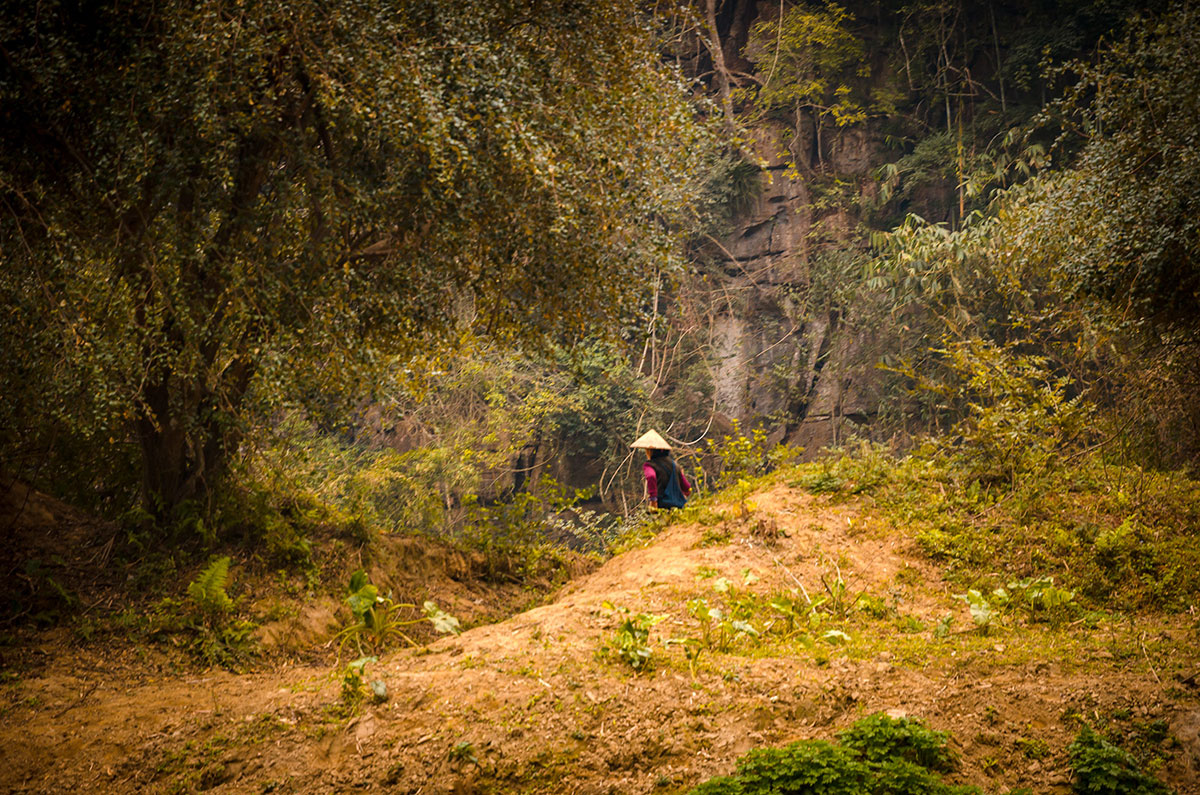
We passed through a dark grotto where we could hardly see our helmsman steering the boat with a long pole.
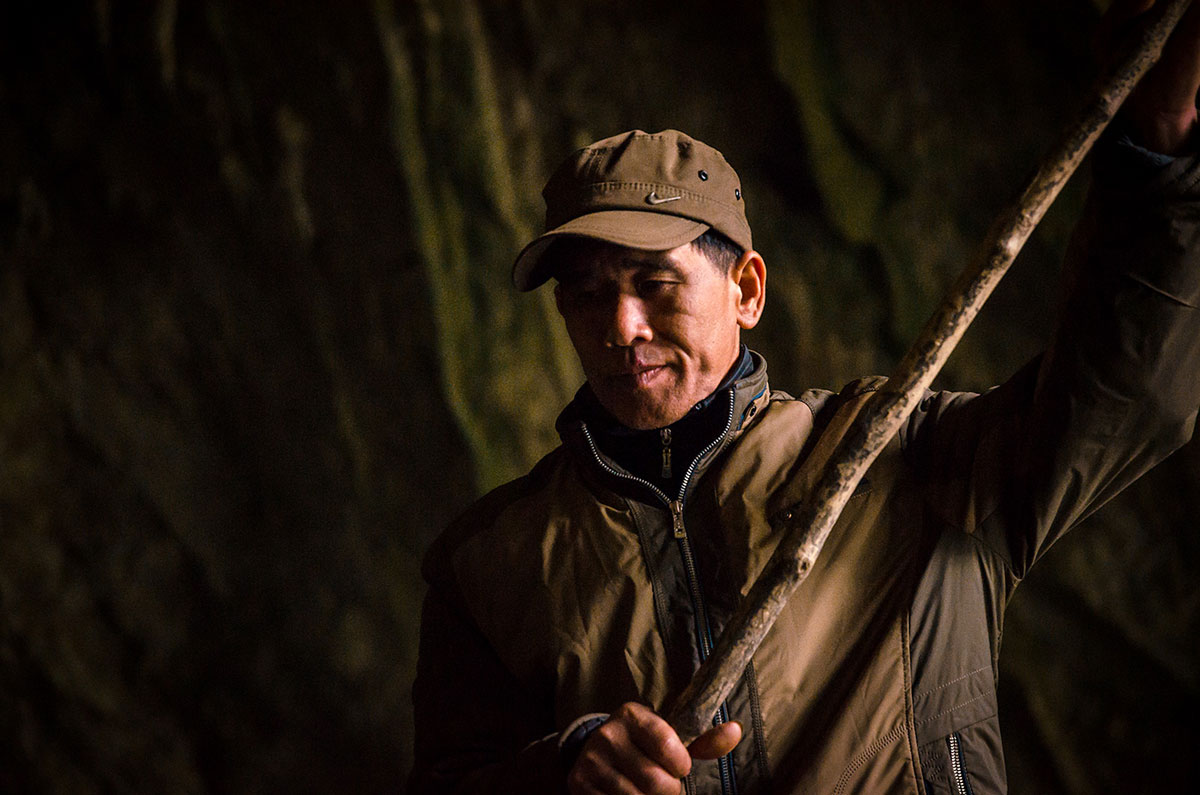
After our boat was securely moored in the grotto, we walked under flying bats to the other end.
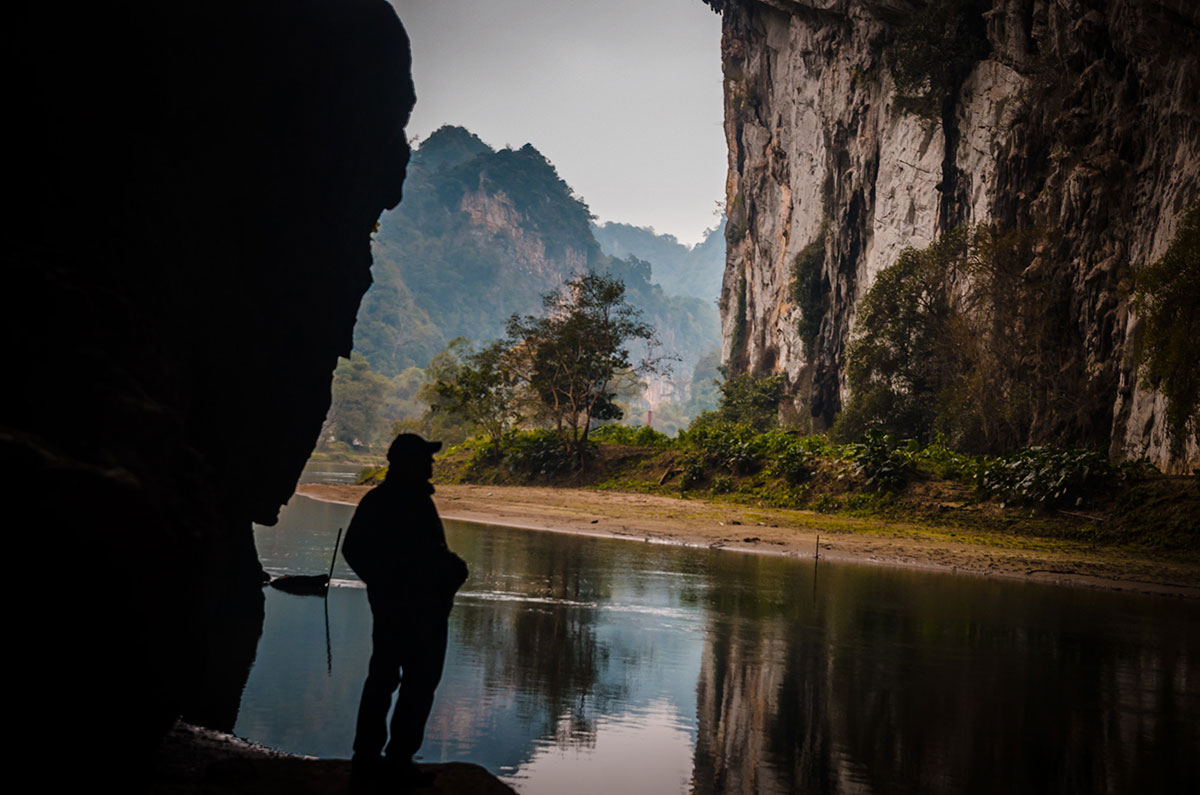
In the silence and crisp air, I contemplated the natural beauty of Ba Be National Park.
Ba Be National Park
Vietnam established Ba Be National Park in 1992. The center of the park is Ba Be Lake, which means Three Lakes referring to its three distinct parts. It is the largest freshwater lake in Vietnam.
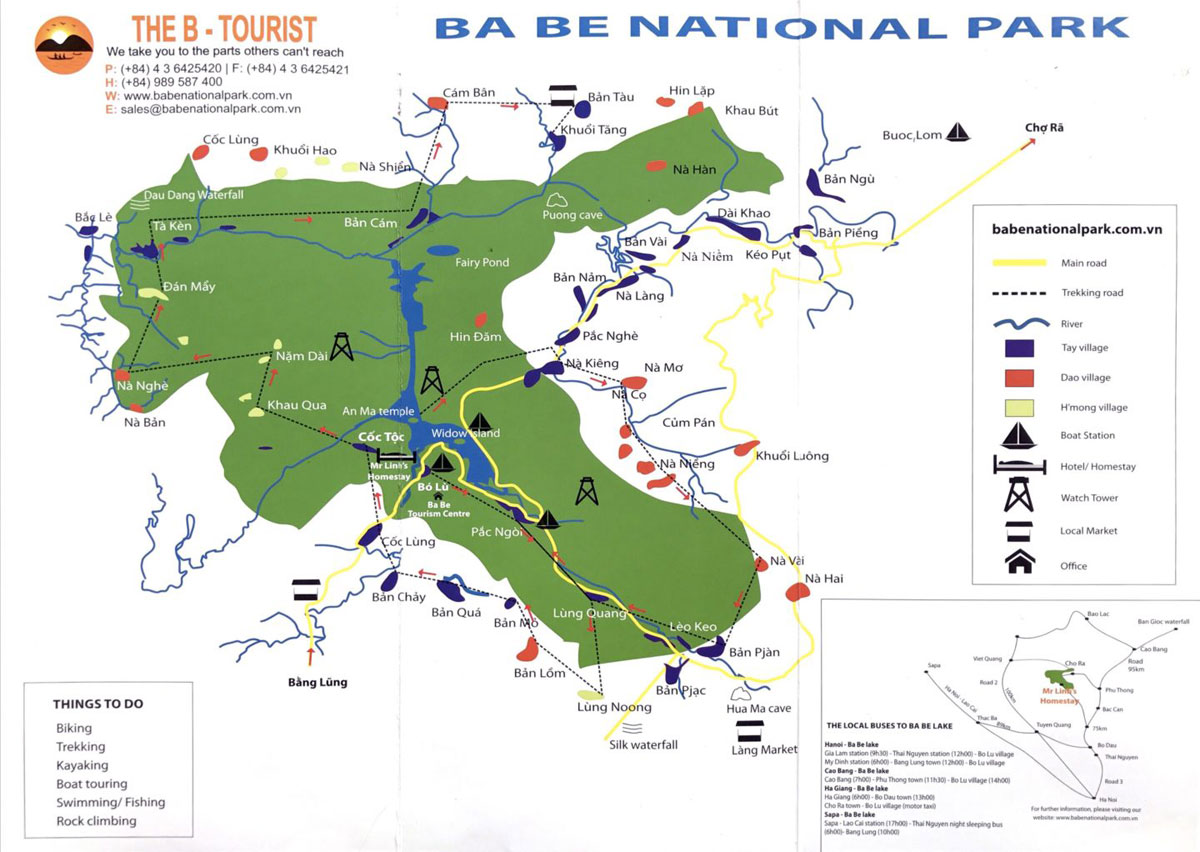
The lake and rivers are located among the karst (limestone) mountains of varying shapes, including the iconic hump. Ba Be features dense evergreen forest, caves and waterfalls. Interspersed are 13 villages, most belonging to the Tay ethnic group but also to the Dao and Hmong. The government subsidizes the villagers not to cut down the trees. Hunting is prohibited but residents may fish. While there we saw this recent fish catch.
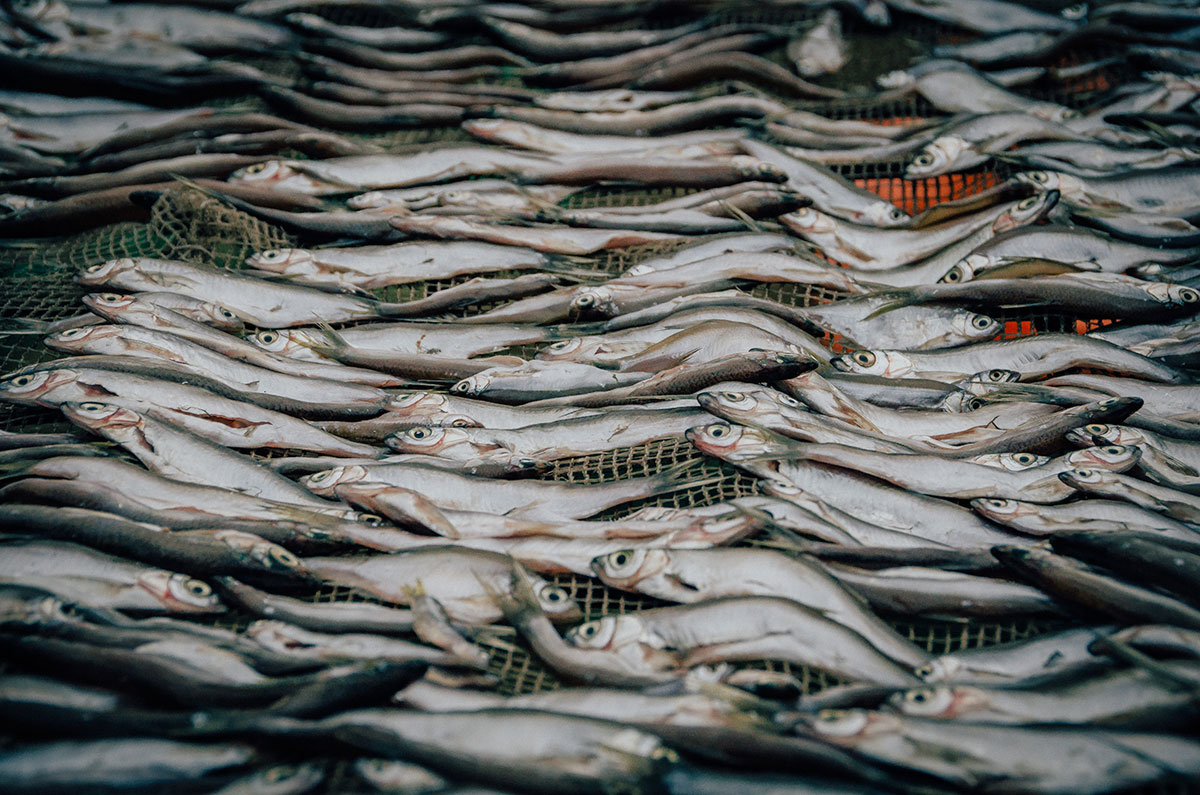
Ba Be has an abundance of fish, bird and wildlife species and domestic animals grazing in and outside of the villages.
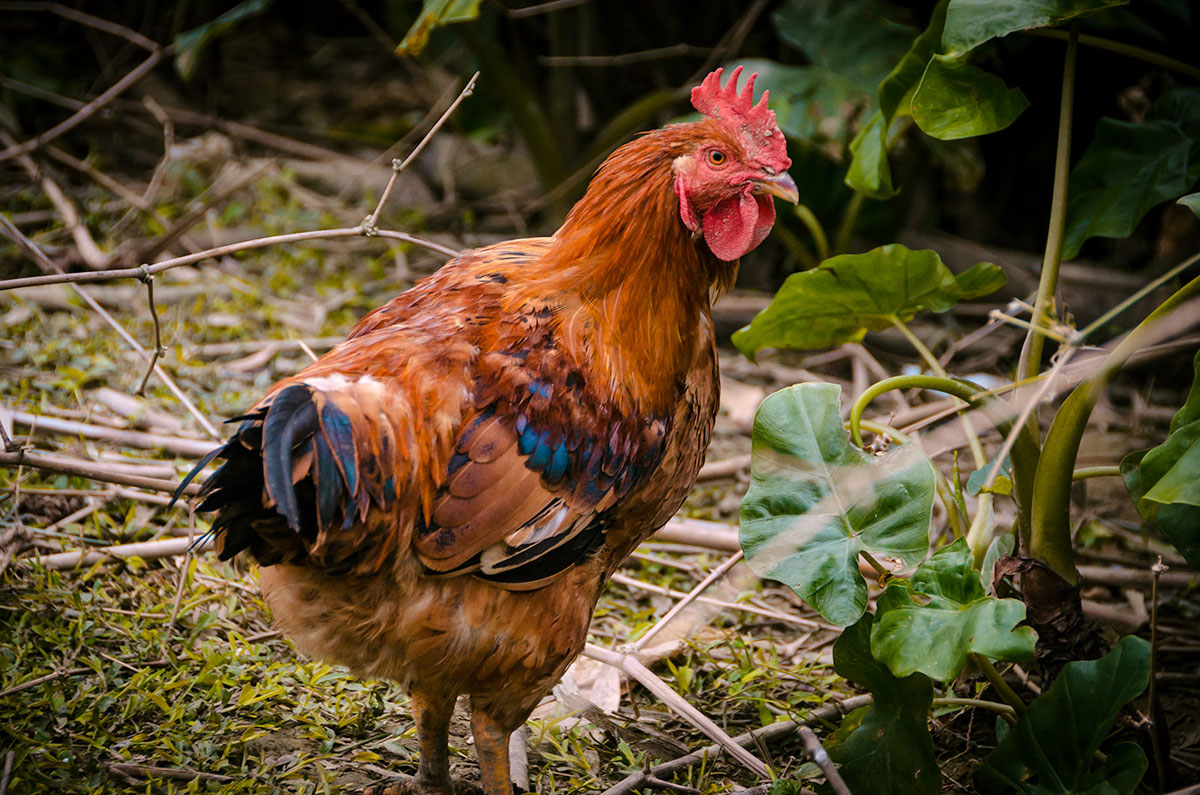
The park offers many recreational activities including hiking, swimming, kayaking, biking and bird watching. Canoes are the main mode of transportation within the park, including large covered ones for supplies and groups of visitors.
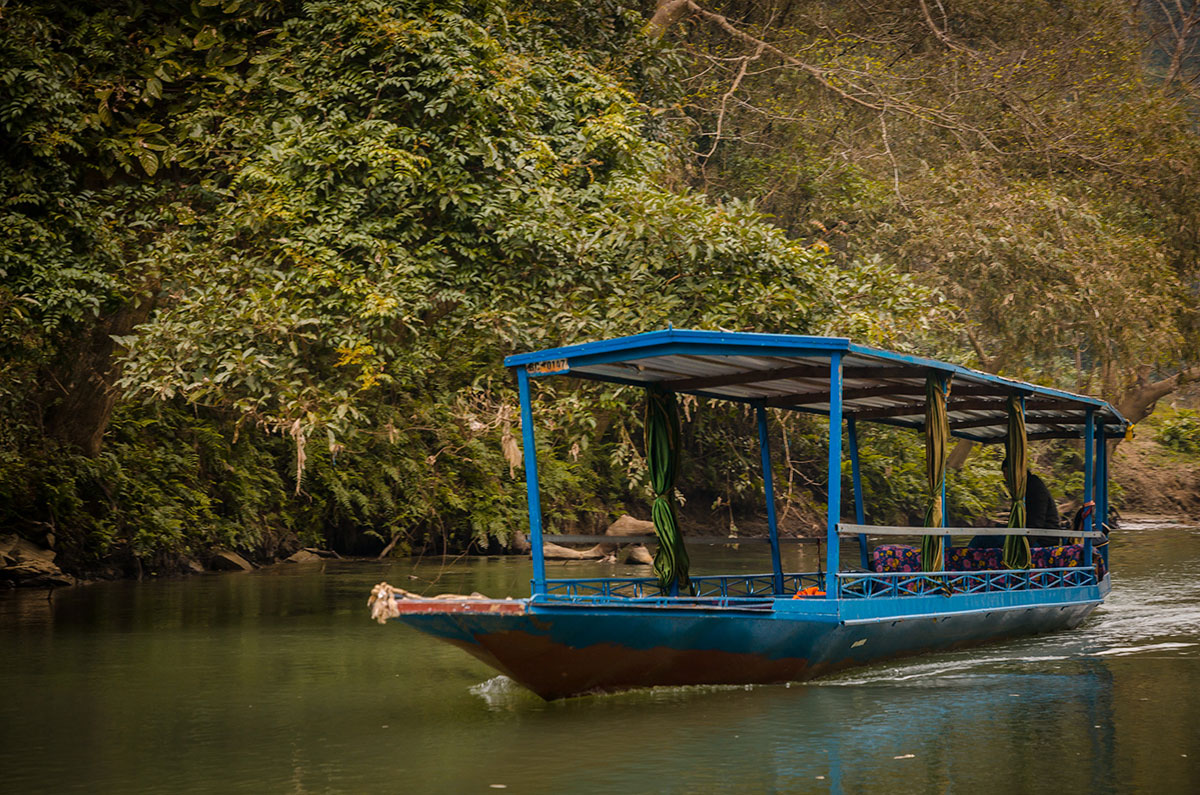
The park is in a rainforest area, so often the skies are overcast.
Mr Linh’s Homestay
Our tour to Ba Be and Sapa was arranged by Mr Linh’s Adventures (http://www.mrlinhadventure.com/en/home.aspx). In Ba Be, we stayed in Mr Linh’s Homestay, which is a guest house with small but comfortable rooms and shared bathrooms.
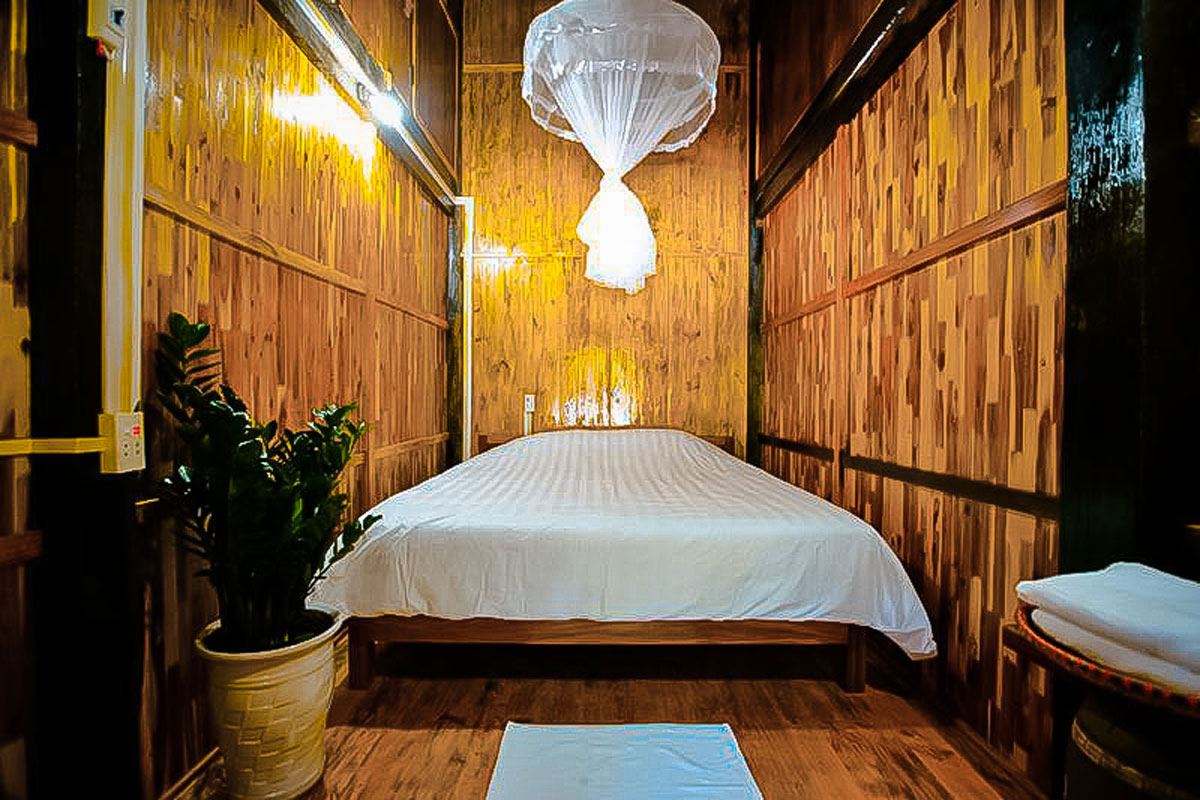
In the park, the tour provided rooms, guide, food and water transportation. It is a very good tour company. Kevin (Hien Nguyen) was our excellent representative. His email is [email protected]. For more information on our tour, see Vietnam – Part 1 – Sapa.
Drive from Sapa to Ba Be Park
In a van with a driver, the agency drove us from Hanoi to Sapa, then to Ba Be, then back to Hanoi. The drive from Sapa lasted all day and went through many small towns…
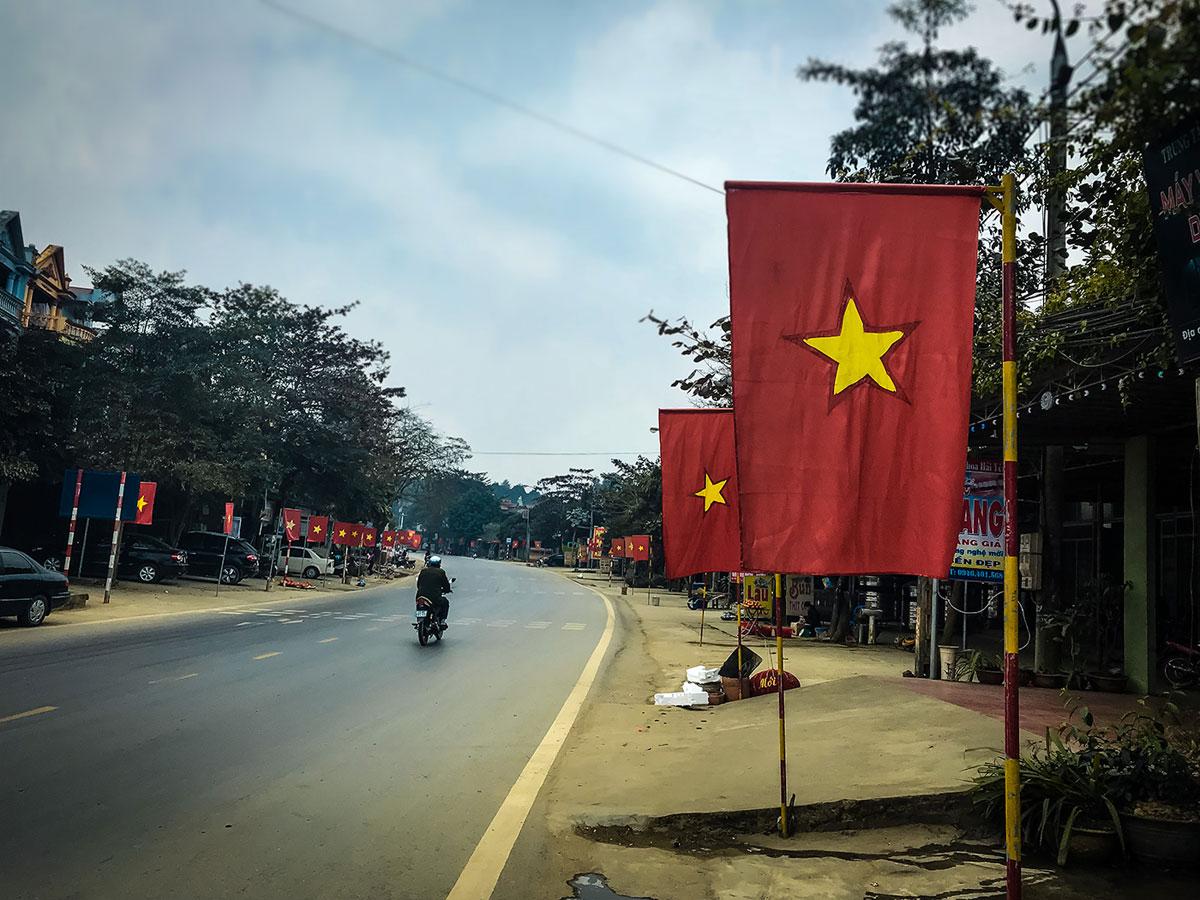
…and rice paddies.
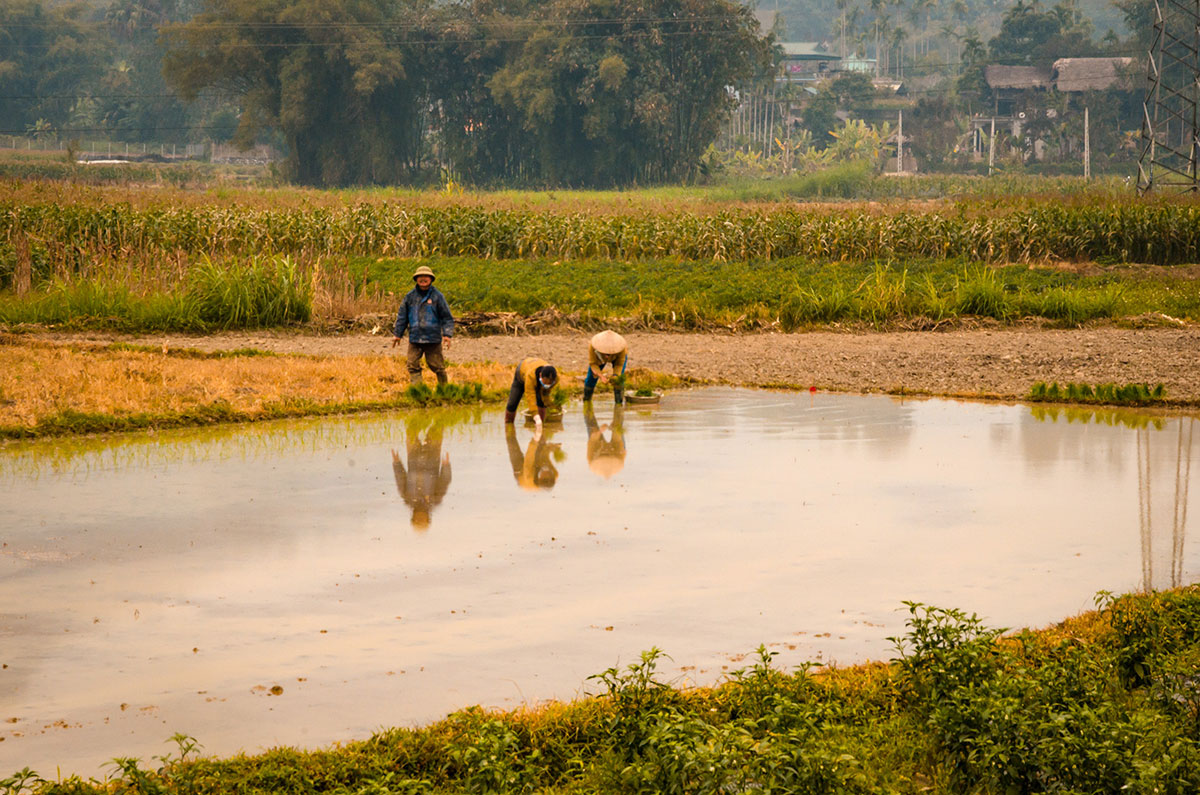
We saw one mountain that was literally being destroyed by mining.
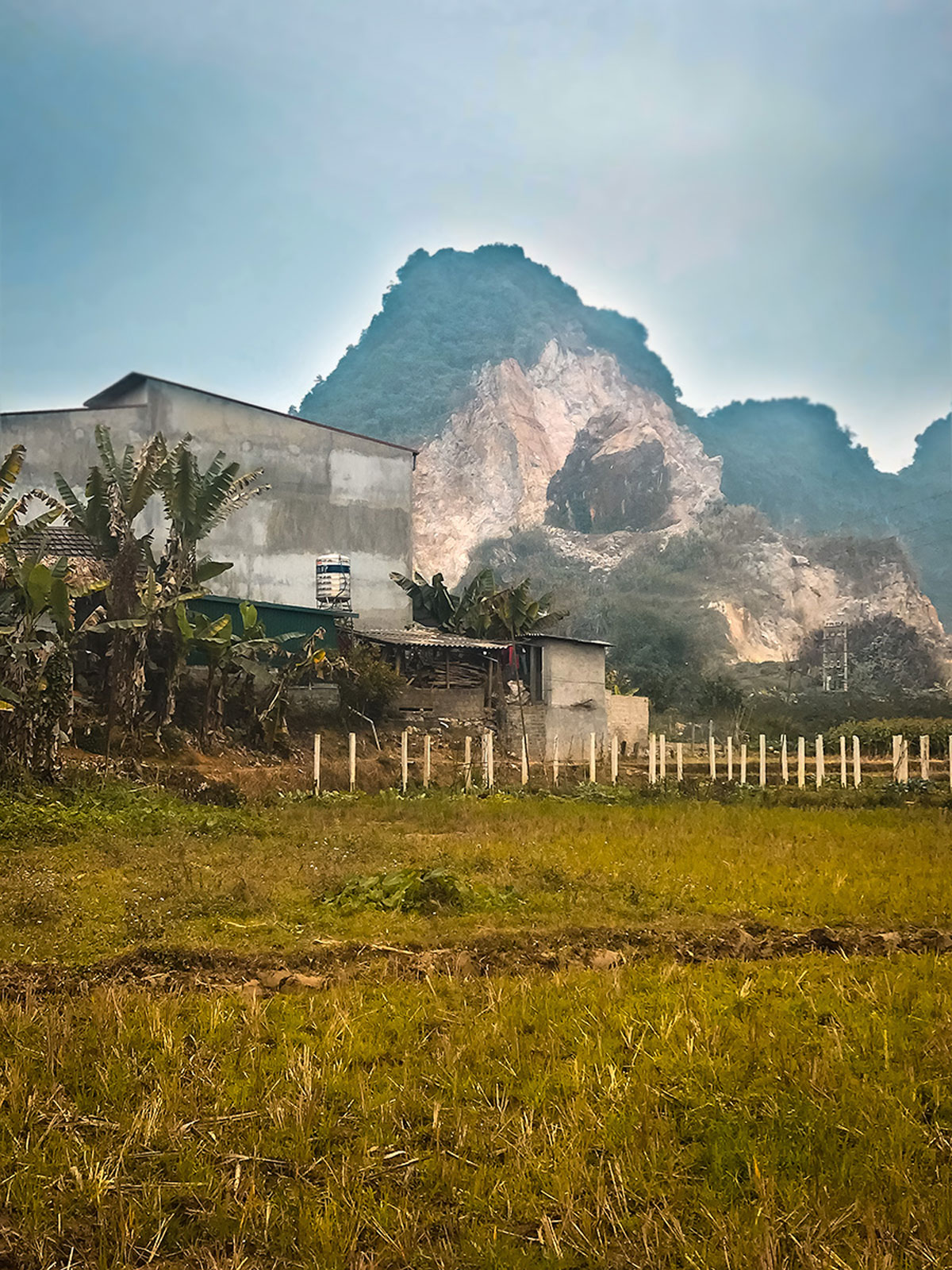
The landscape was mostly a repetitive series of small towns and rice paddies. At certain points, it was especially scenic.
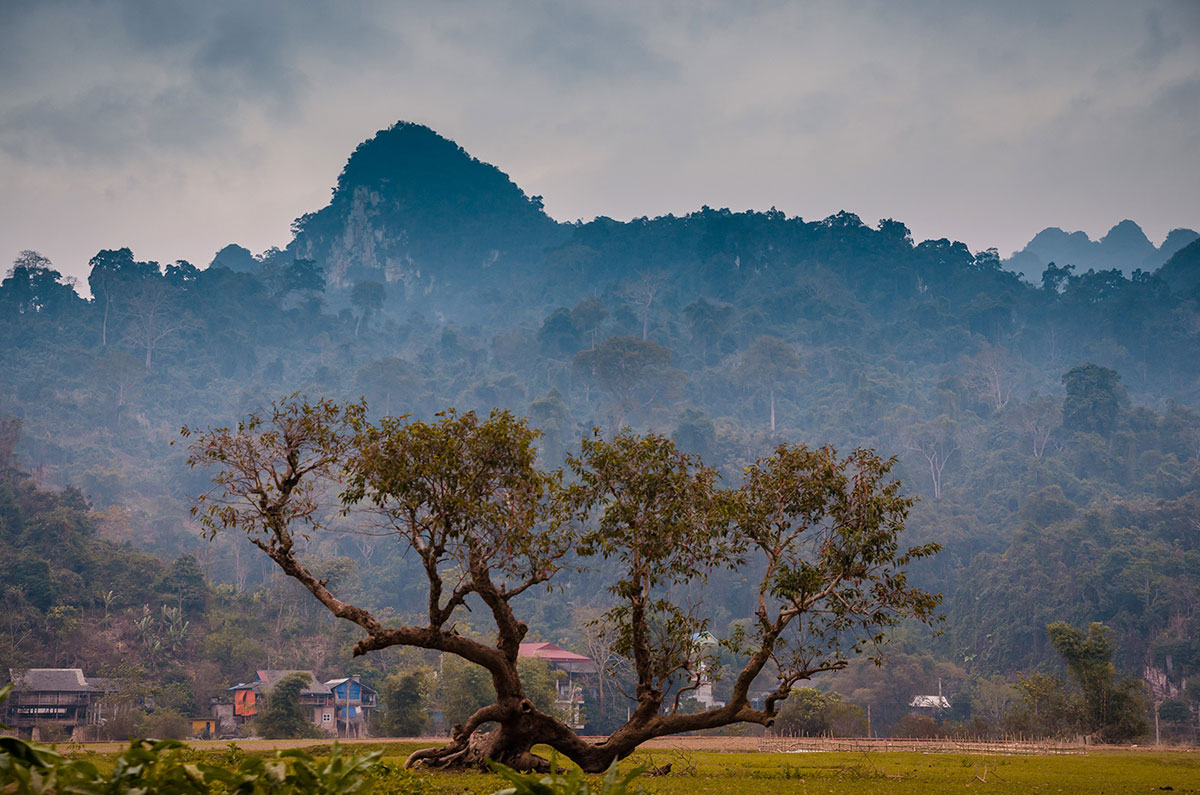
I did enjoy taking this portrait of a woman who apparently fertilizes the crops.
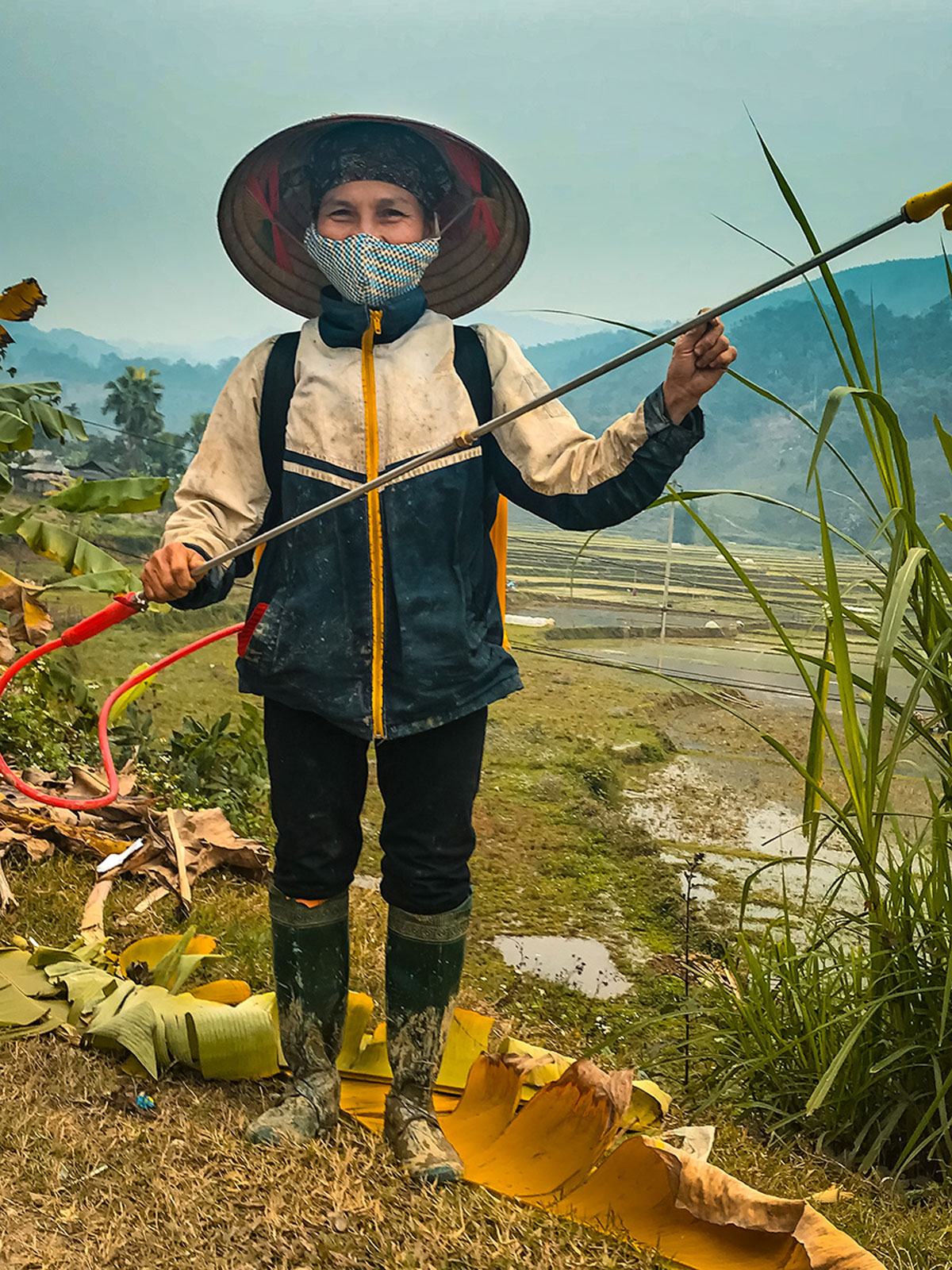
The area has no airport so driving is the only choice. It takes less time from Hanoi, only five-hours.
Ban Cam Village
Early on our first morning, we boarded a covered row boat to explore Ba Be Lake and the Nang River. Our first stop was Ban Cam nestled in the striking landscape.
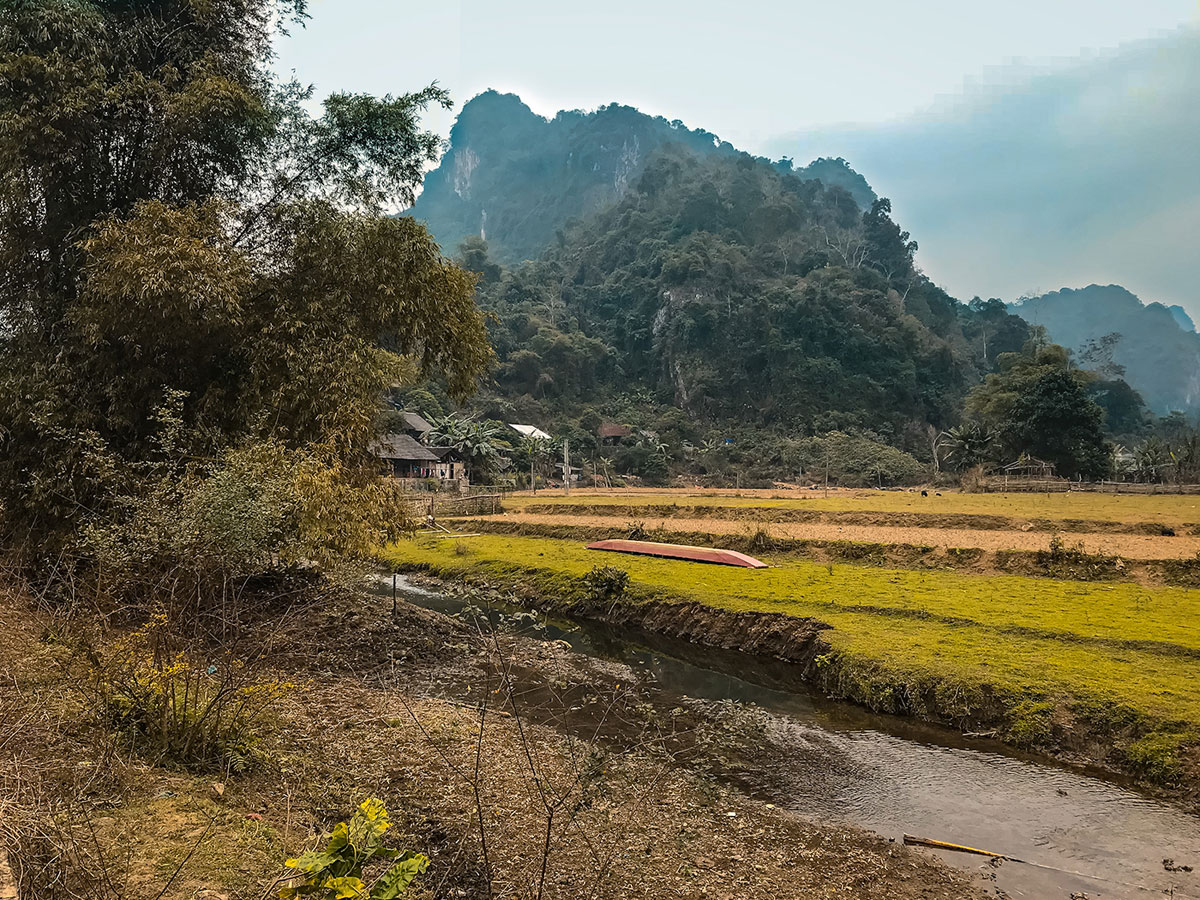
The village is inhabited by the Tay people, the second largest ethnic group in Vietnam after the majority Viet. They have assimilated considerably into modern Vietnamese society and do not stands out as some other groups.
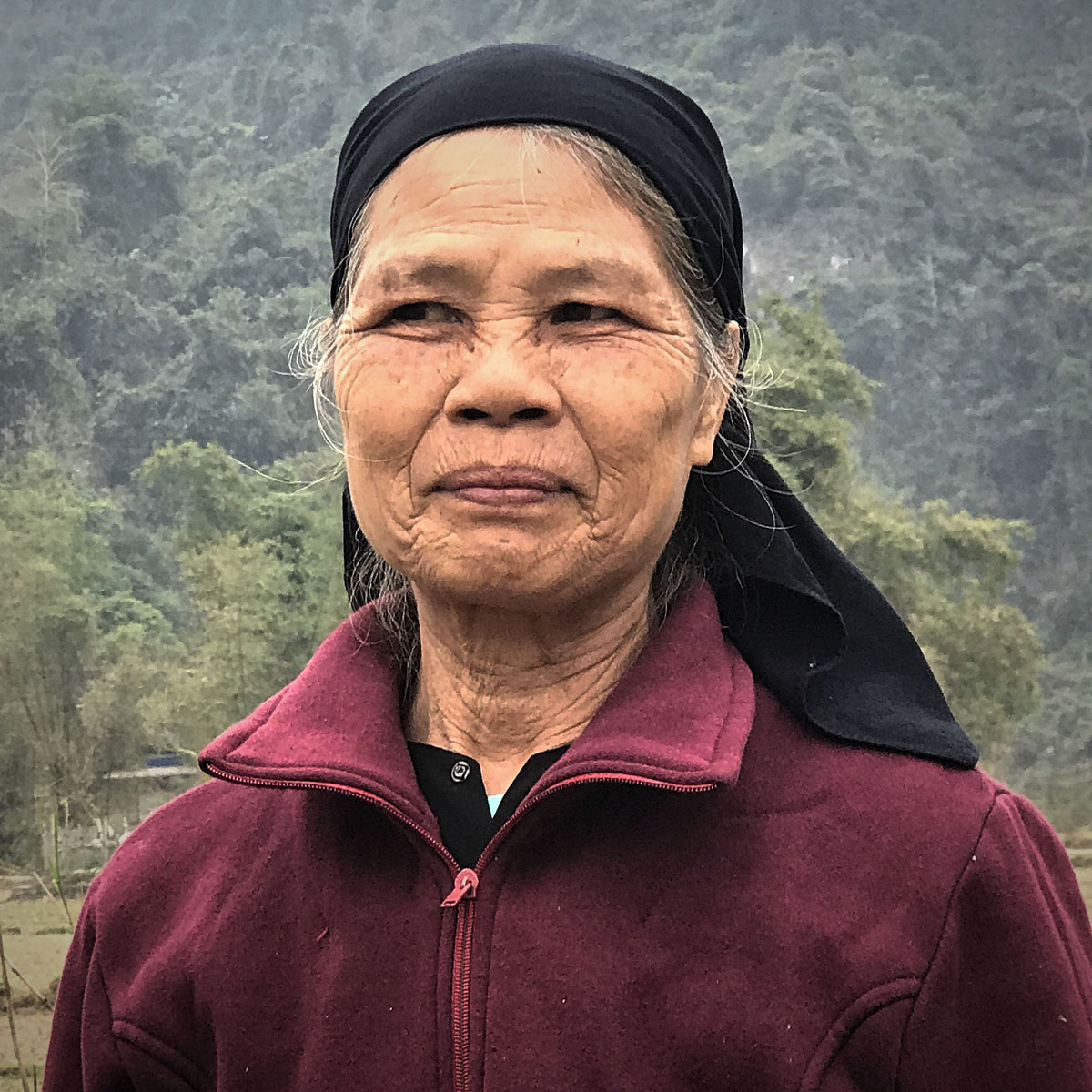
This is a typical Tay villages located at the foot of a mountain with fewer than 20 households. The majority of Tay practice their own religion worshipping various gods who protect their land and communities. They have a native language but it is spoken by only 5% of the group.
Mr Linh’s Adventures provided an excellent guide, Linh An, who is knowledgeable about the country’s ethnic groups and speaks good English. He was particularly helpful in spotting good photographic opportunities. He can be contacted by email at [email protected].
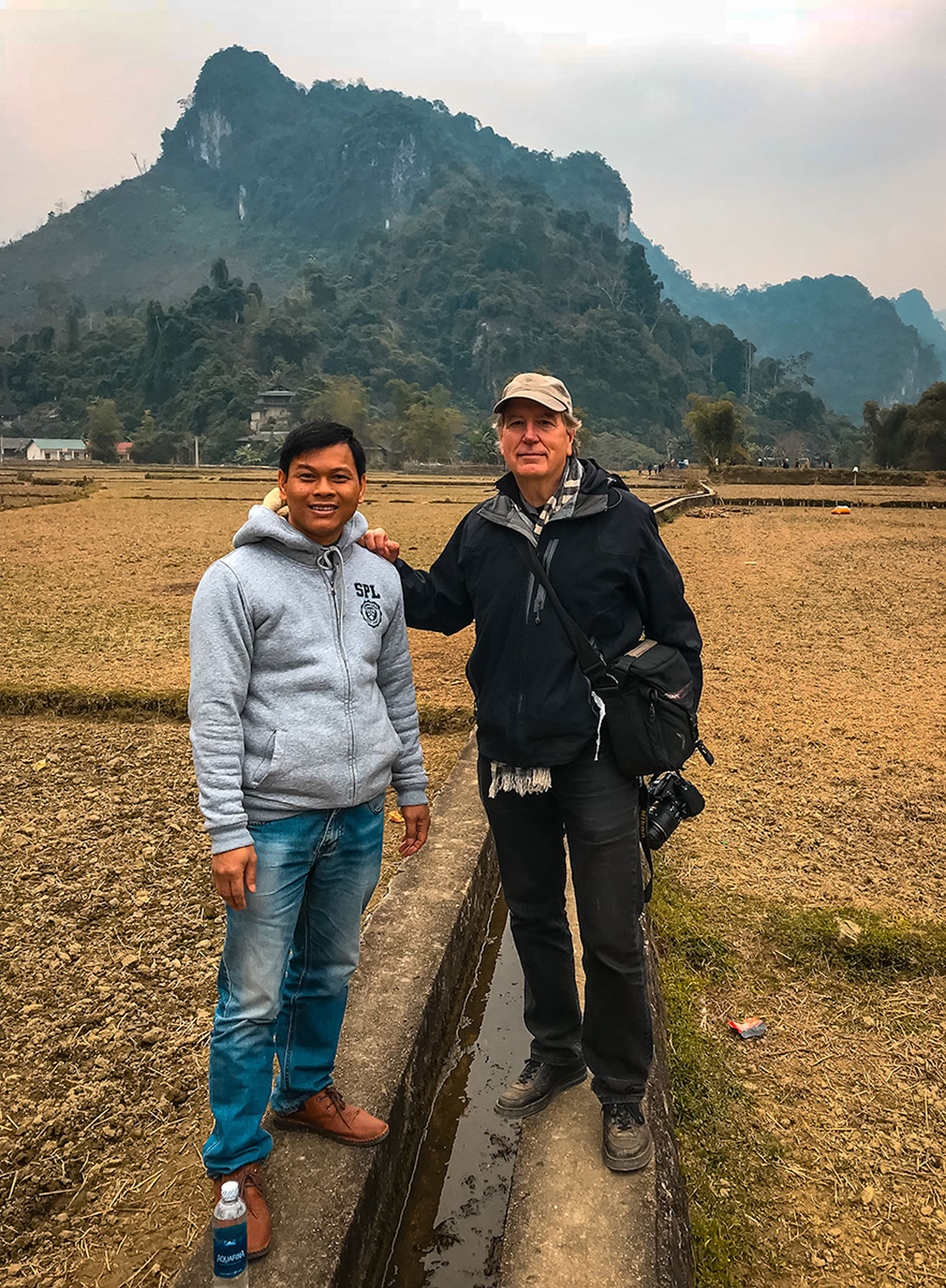
Linh had a friend in the village, who invited us in for food and drinks.
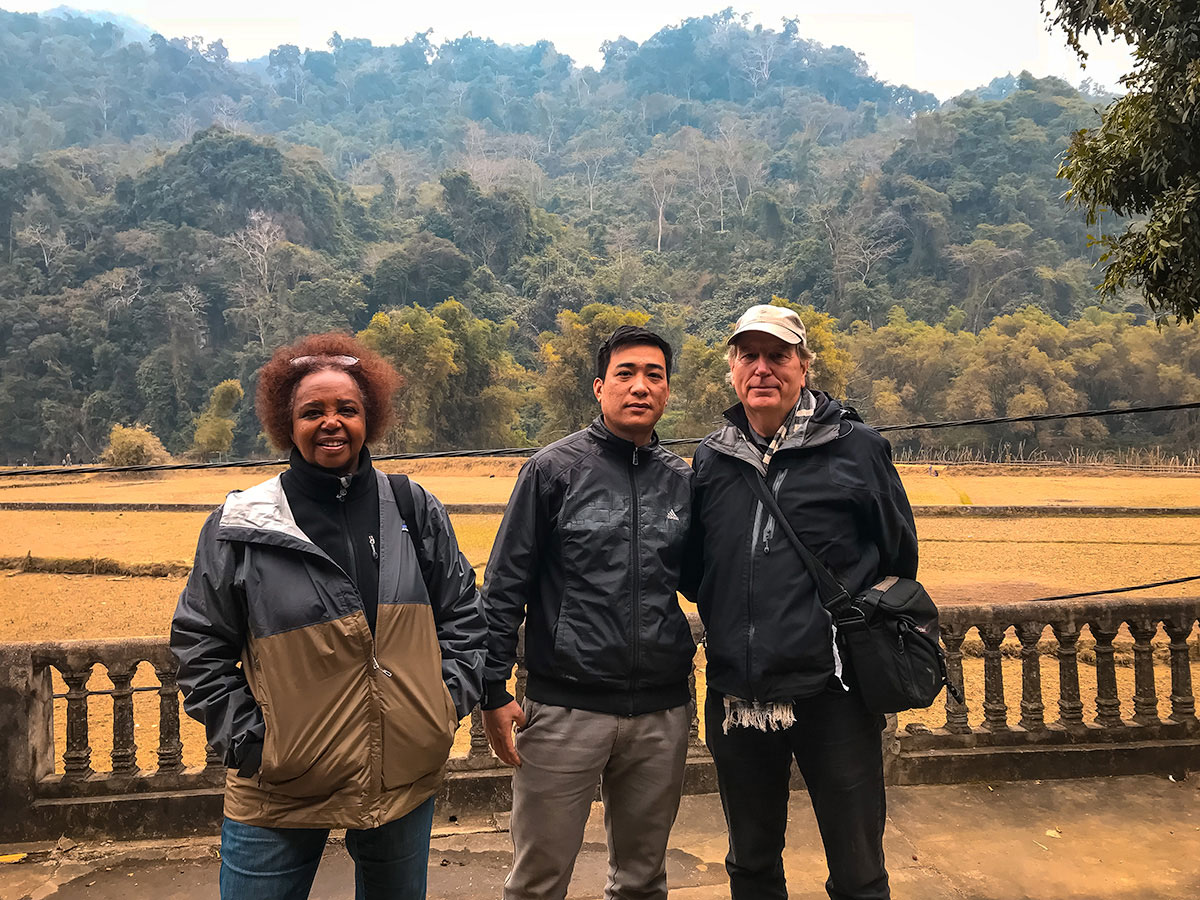
While visiting we saw a family butchering a pig for the upcoming Tet celebration.
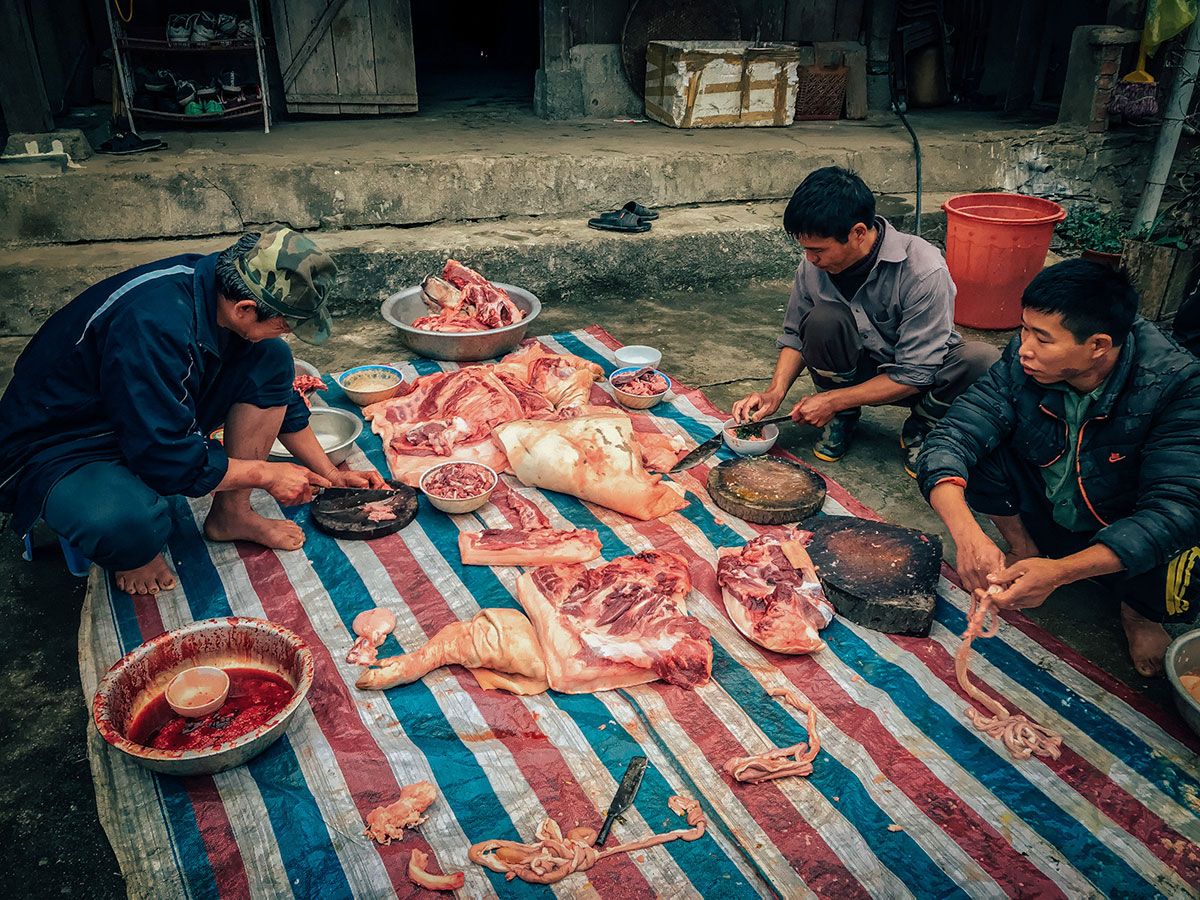
Puong Cave
We returned to the boat and proceeded on the Nang River.
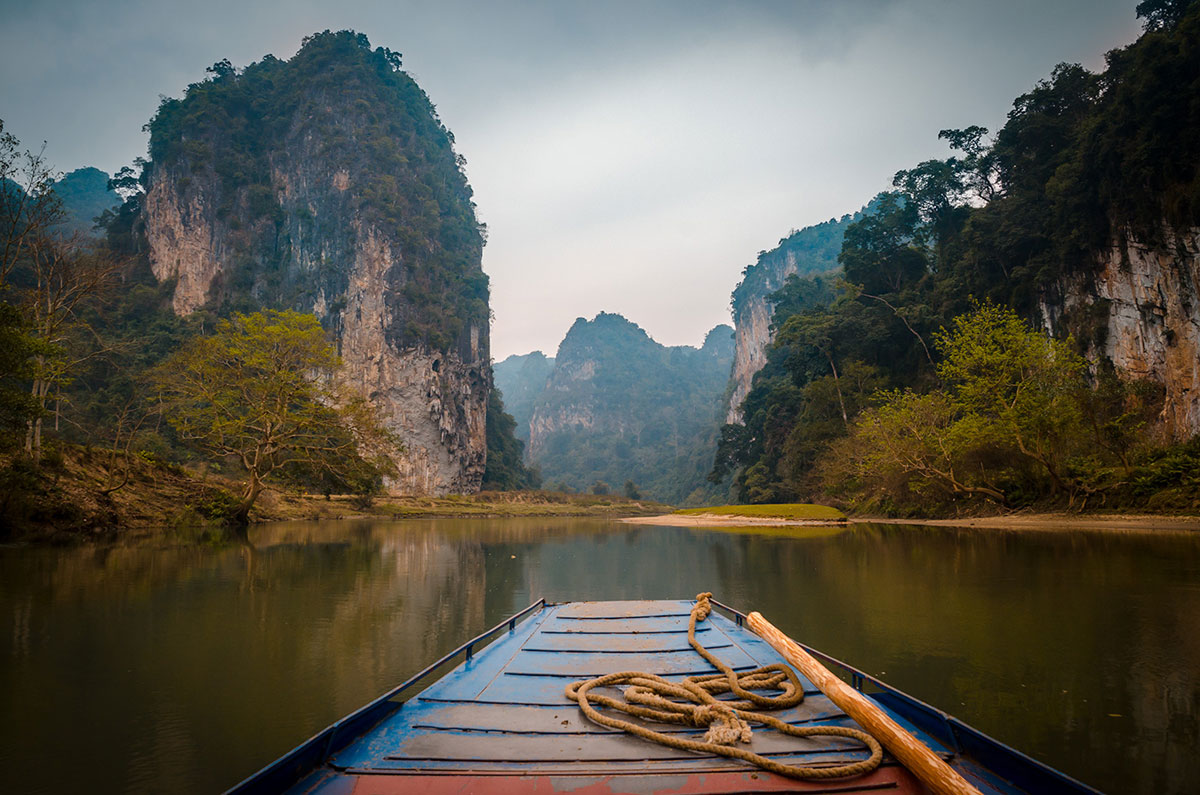
We eventually arrived at the Puong Cave, which is a limestone grotto the Nang River flows through.
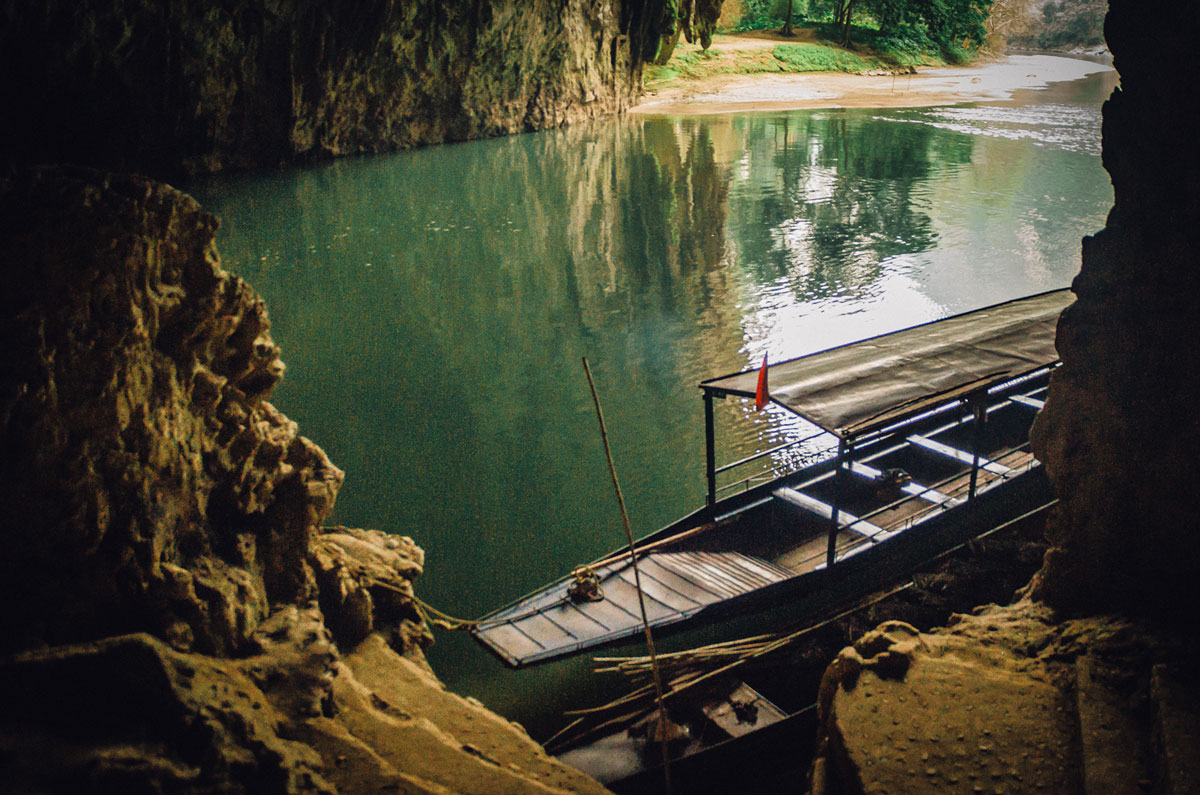
The cave is about 200 meters (600 feet) long. We spent ten minutes walking through it. We saw a series of caverns but few large stalactites and stalagmites. There were hundreds of bats flying just underneath the ceiling. At the other end of the cave, Khadija posed for a picture.
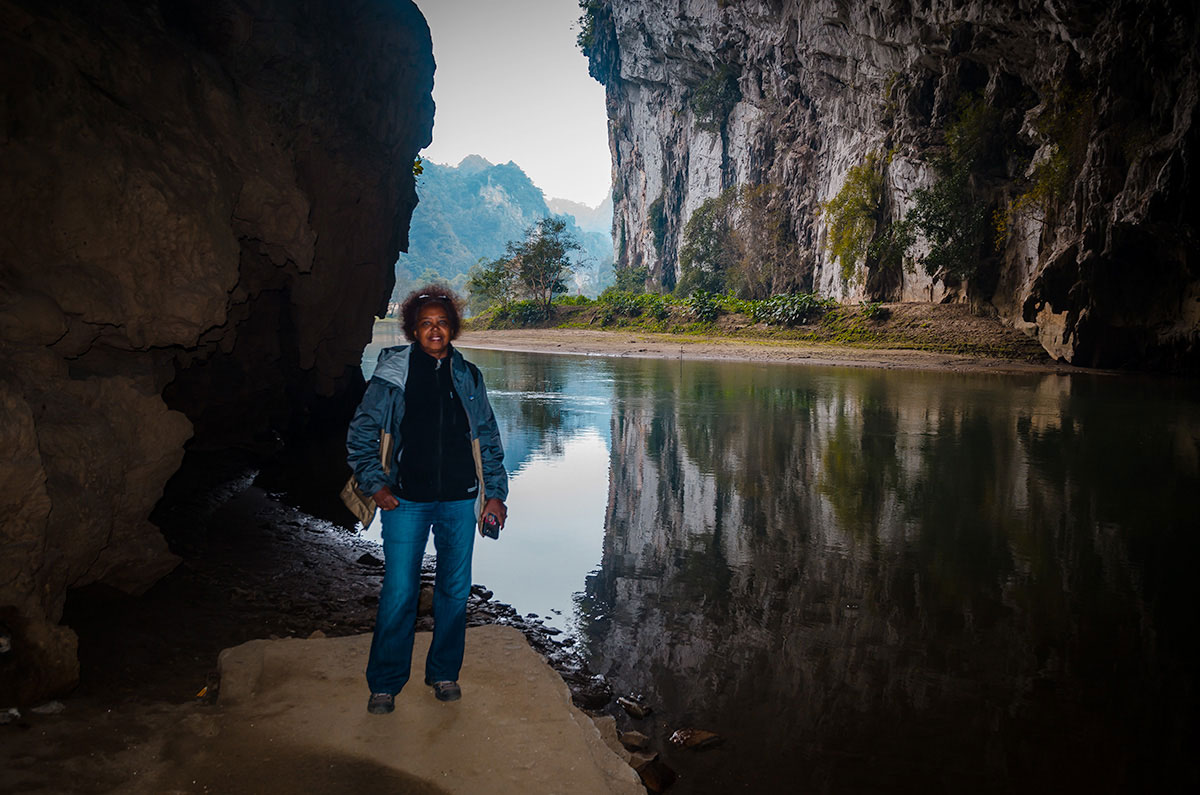
It was too dark to take pictures in the middle without a tripod. I left it in the boat and did not feel it was worth walking back for.
Dau Dang Waterfall
From Puong Cave, we turned around towards Dau Dang Waterfall. We had lunch in a large barn-like restaurant in Ta Ken. Then we sailed a little more to a path to Dau Dang Waterfall. We walked for ten minutes, past houses, crops and life stock.
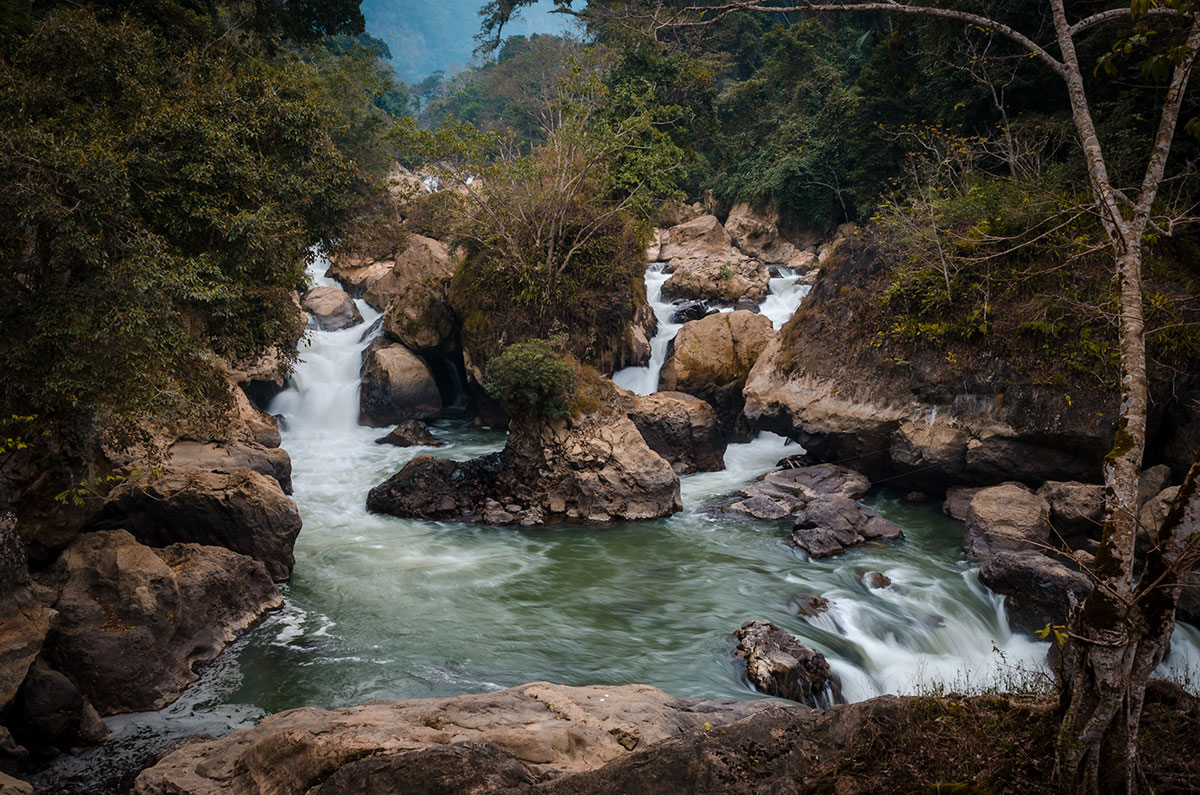
On the way back to the boat, we saw men chasing a pig who was loudly squealing. I believe the pig knew his life was about to end.
An Ma Temple
An Ma Temple is located on a tiny island in Ba Be Lake. It is a place of worship of Buddha and natural spirits.
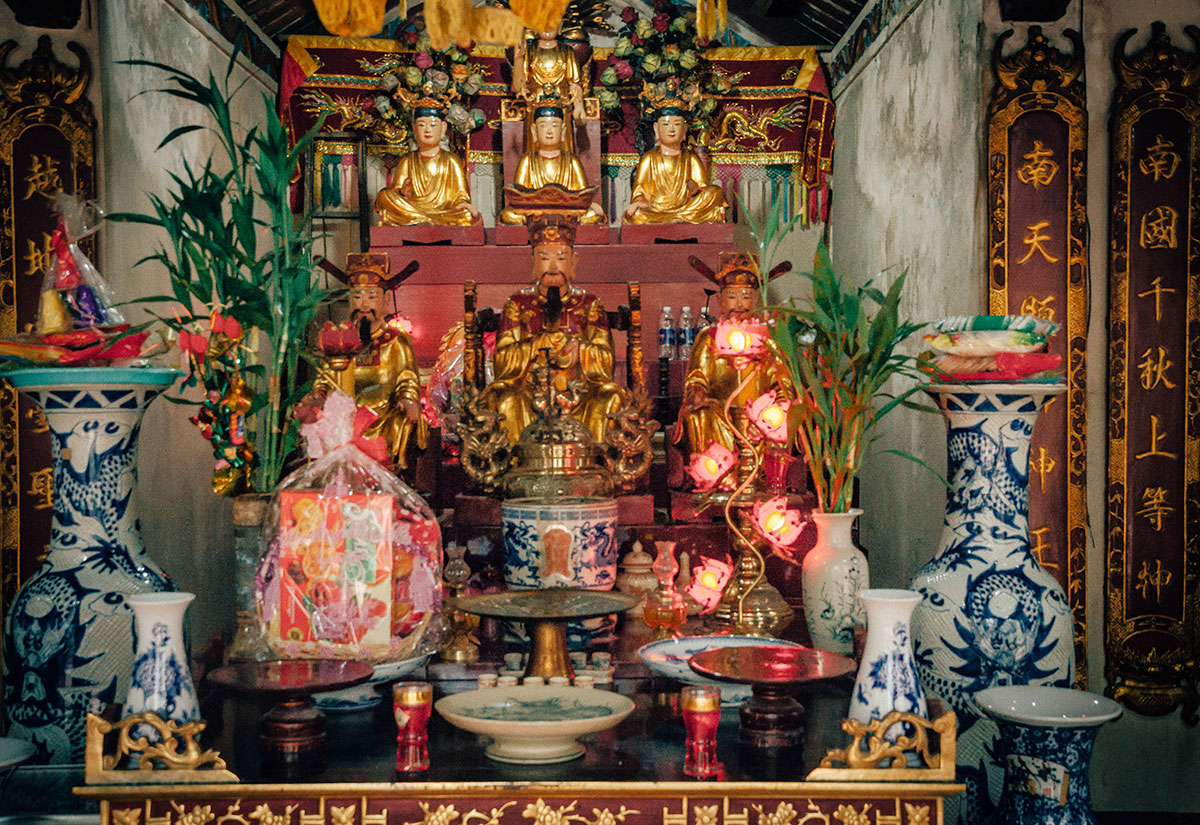
I liked these ridged lamp shades which we stacked on the side.
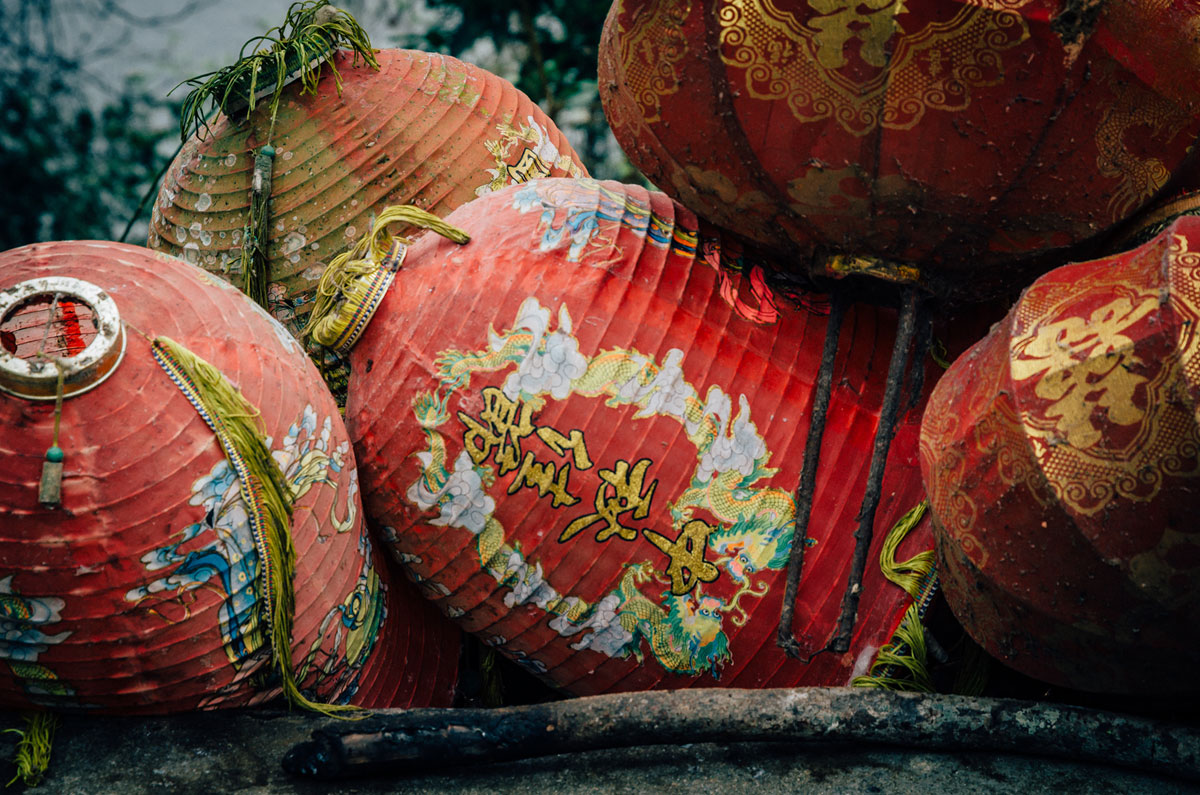
This old temple was rebuilt in 2006. There is a small house next to it, apparently for the caretaker.
Coc Toc Village
We returned to our homestay. As it was not yet dark, Khadija and I decided to walk to Coc Toc, another Tay village.
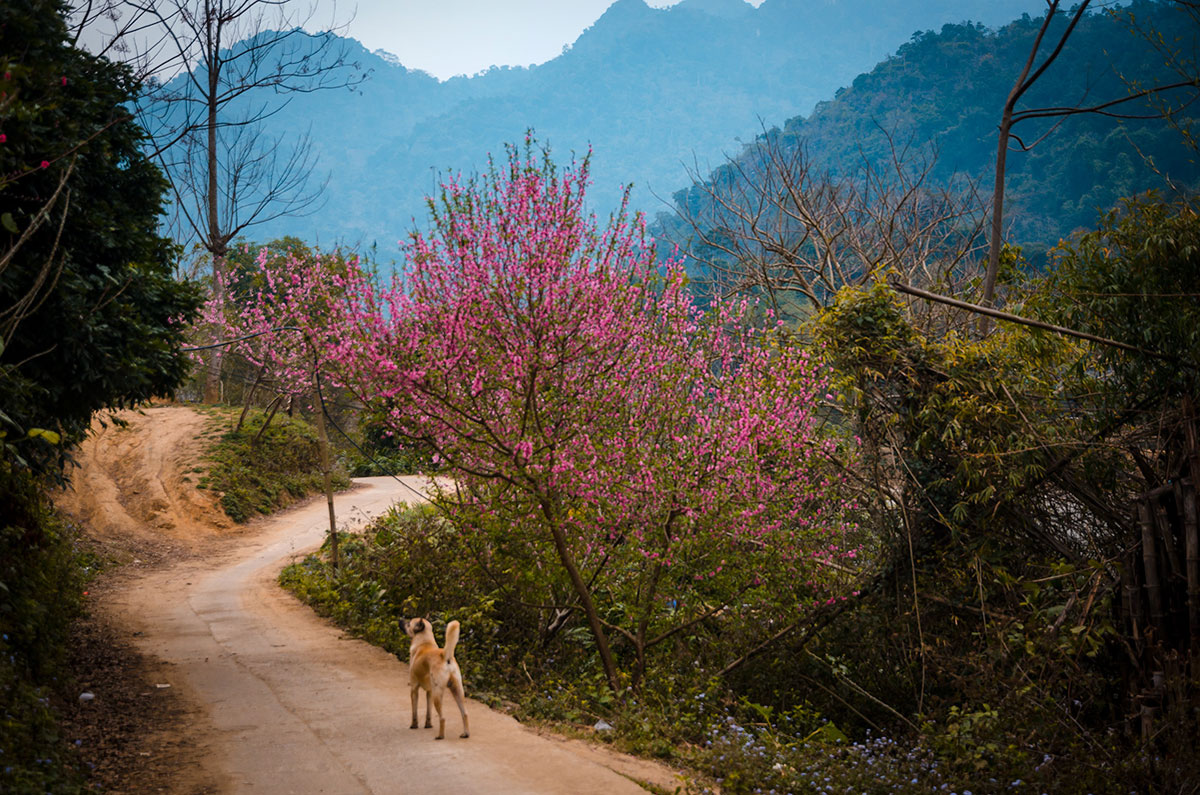
The village residents were preparing for Tet festivities or relaxing.
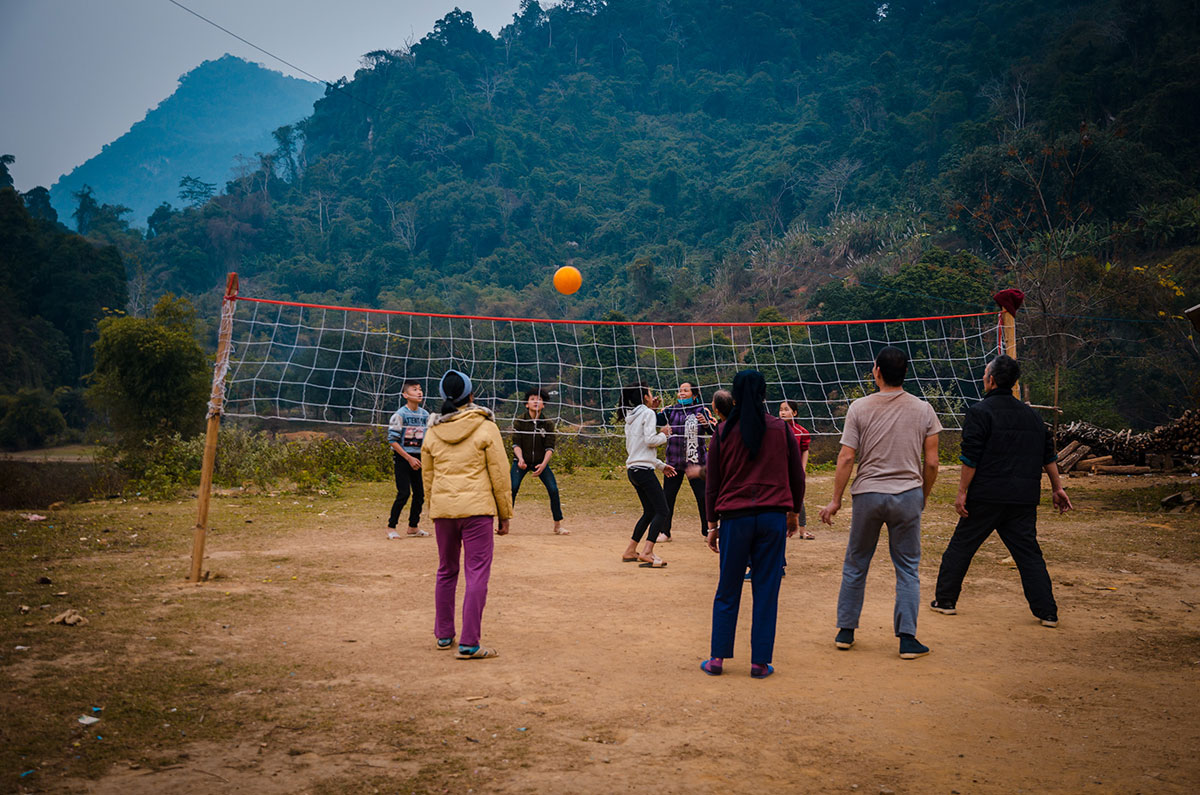
Looking at the lake, we saw the village canoes moored.
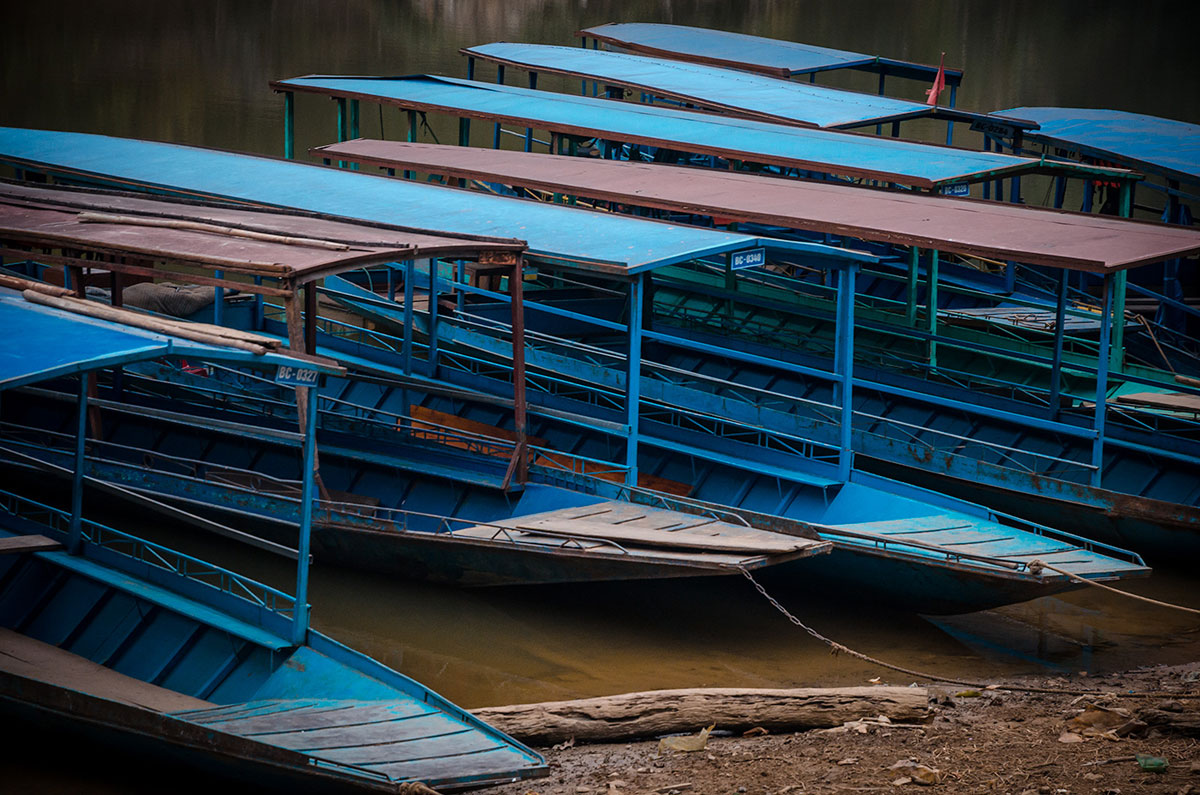
After being in the village for a half hour, we walked back and saw this woman holding the young child.
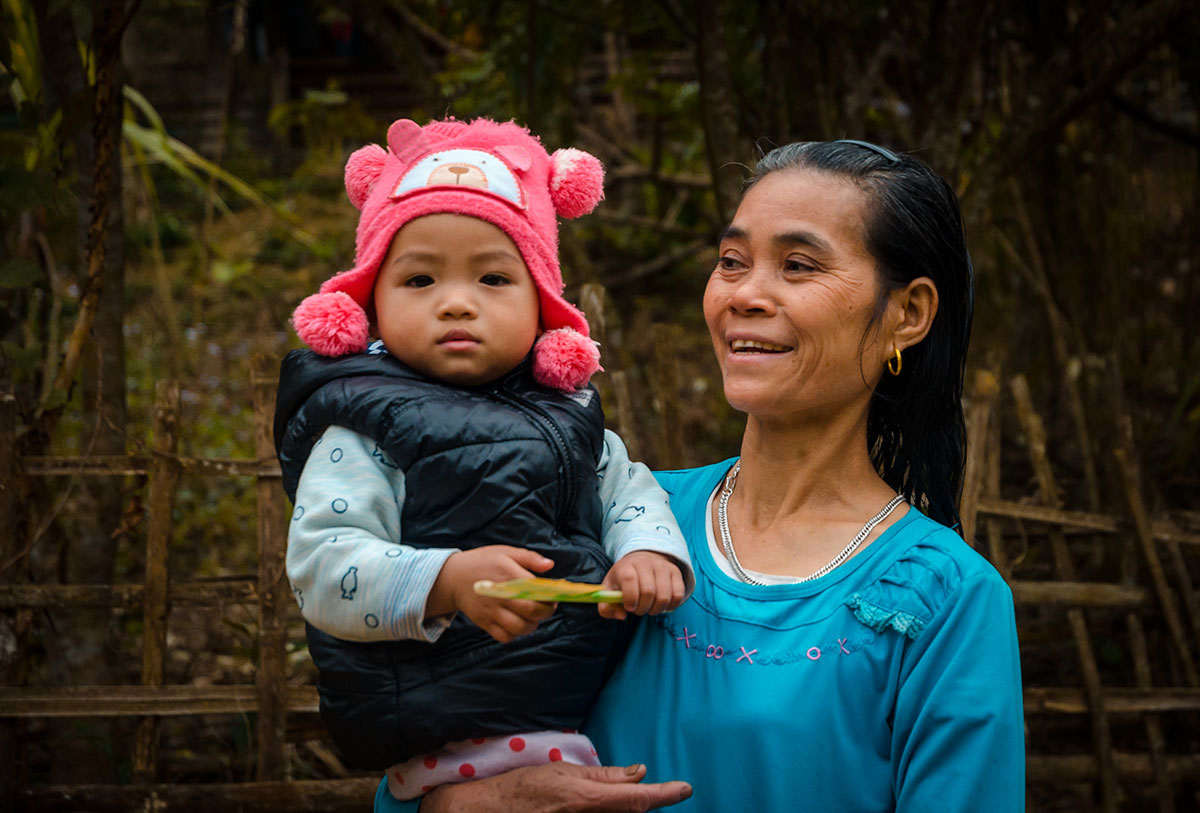
How Long in Ba Be National Park?
We spent the equivalent of a day and a half in the park. It was short, especially considering the travel time from Sapa. If our schedule would have permitted it, I would have spent another day hiking around the mountains and visiting Hmong and Dao villages.
Next Stop
The next day, we loaded our luggage into the van. We were scheduled to go to the nearby Hua Ma Cave which features thousands of stalactites and stalagmites. We decided to skip it as we have seen scores of caves throughout the world and wanted to arrive in Hanoi earlier. See Vietnam – Part 3 for our visit to Ha Long and Ba Tu Long Bay.

